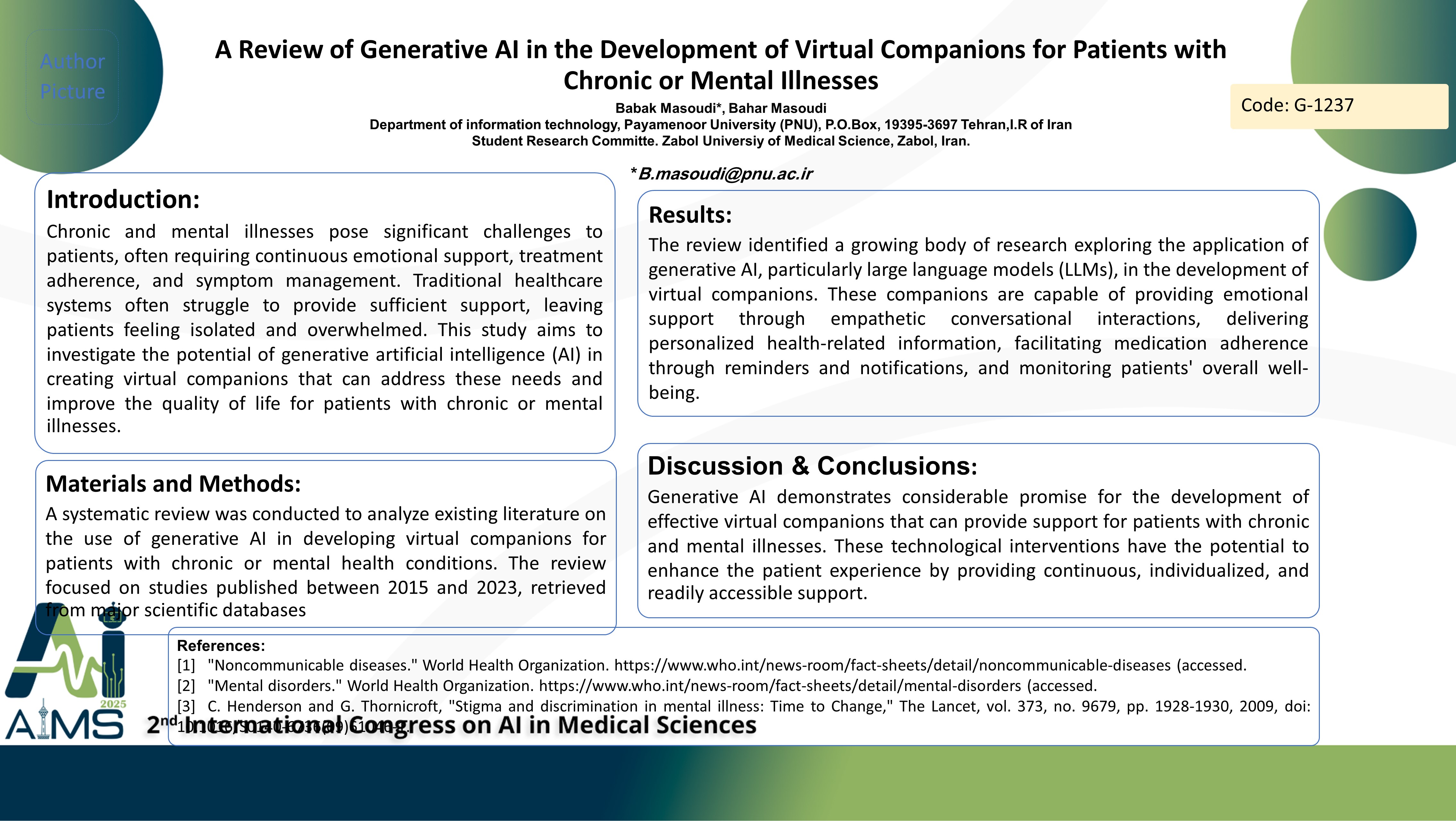مروری بر هوش مصنوعی مولد در توسعه همراهان مجازی برای بیماران مبتلا به بیماریهای مزمن یا روان
کد: G-1237
نویسندگان: Babak Masoudi * ℗, بهار مسعودی
زمان بندی: زمان بندی نشده!
برچسب: دستیار مجازی هوشمند
دانلود: دانلود پوستر
خلاصه مقاله:
خلاصه مقاله
Background and Objective: Chronic and mental illnesses pose significant challenges for patients, who often require ongoing emotional support, adherence to treatment, and symptom management. Traditional healthcare systems often struggle to provide adequate support, leaving patients feeling isolated. The aim of this study was to investigate the potential of generative artificial intelligence (AI) in creating virtual companions that can address these needs and improve the quality of life of patients with chronic or mental illnesses. Method: A systematic review was conducted to analyze the existing literature on the use of generative artificial intelligence in the development of virtual companions for patients with chronic or mental health conditions. The review focused on studies published between 2015 and 2024. The search strategy included keywords such as “generative artificial intelligence”, “virtual companions”, “chronic illnesses”, “mental health”, “chatbots”, and “avatars”. Included studies were assessed for quality using appropriate tools, and data were extracted on the type of AI used, the functions of the virtual companions, and their impact on patient outcomes. Results: This review identified a growing body of research examining the use of generative AI, specifically large language models (LLMs), in the development of virtual companions. These companions are able to provide emotional support through empathetic conversational interactions, provide personalized health-related information, facilitate medication adherence through reminders and notifications, and monitor patients' overall well-being. Preliminary findings suggest that the use of these virtual companions may be associated with reduced feelings of loneliness and anxiety, improved adherence to treatment plans, and increased self-management of symptoms. In addition, studies demonstrate the potential of generative AI in creating realistic and engaging avatars that can enhance human-computer interaction and facilitate communication between the patient and the virtual companion. Conclusion: Generative AI shows significant promise for developing effective virtual companions that can support patients with chronic and mental illnesses. Future research efforts should prioritize conducting large-scale randomized clinical trials and developing robust ethical frameworks to govern the deployment of AI-based virtual companions in healthcare settings.
کلمات کلیدی
Generative AI, Virtual Companions, Chronic Illness
